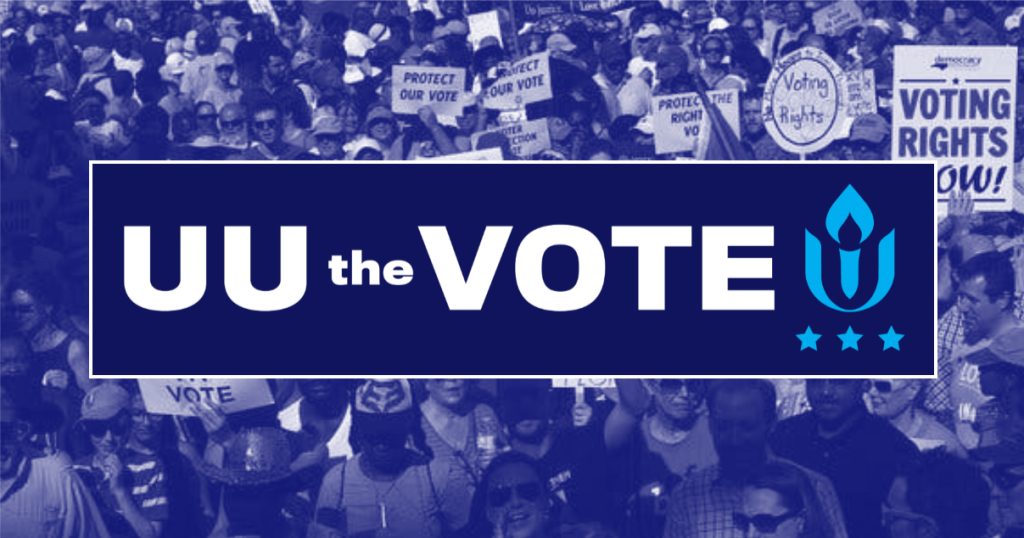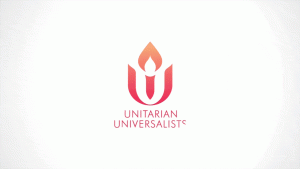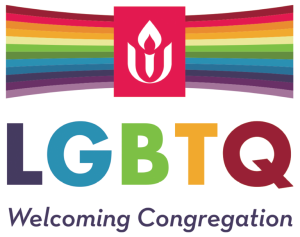The fifth principle: The right of conscience and the use of the democratic process within our congregations and in society at large

An interview with Peg Maginn, who is a retired speech pathologist, business owner, farmer and adjunct professor at Manchester University and Purdue University Fort Wayne. She has devoted much of her volunteer time for many years to the League of Women Voters.
Peg, please talk about how the fifth principle applies to your work for legislative redistricting reform.
I believe the democratic process is essential to good government and must be fair and equitable for all. And my definition of “good government” is a political system with laws, regulations and services that respect and affirm the inherent worth and dignity of every person, along with the rest of our interdependent web of all existence. Thus, many of the UU principles form the basis of my advocacy for fair voting maps.
Humans are a diverse group of living beings, and for the democratic process to work optimally, it is vital that all voices be heard and contribute to our political process. Our current government structure depends on our voting districts being of equal quantity. Each district must contain approximately the same number of voters, as mandated by our U.S. Constitution. However, it is just as important that the districts be equal using qualitative measures. That is, the voice of each voter should carry equal weight resulting in equal representation. And we have a long history of failing in this area, with various groups of people initially denied the right to vote (such as those who didn’t own land, women, Native Americans or Blacks, for example). Even after the legal right to vote was granted to almost all citizens of voting age (those with felony convictions often remain disenfranchised), many groups of citizens still do not receive equal representation due to unfair voting maps.
The majority of states allow their legislatures to draw the voting district maps every 10 years. That system allows those in the majority political party to draw maps in their favor, a process called “gerrymandering.” And it is because of this pervasive partisan bias in map-drawing that I have joined with many others to advocate for commissions of independent citizens to draw fair maps. Only then can the democratic process be assured.
Given your interest in the democratic process, was the fifth principle one of the things that attracted you to Unitarian Universalism?
Yes, it was one factor. It helped me perceive UU as an organization with clear, reasoned principles to guide the participation of members both within UU itself as well as in the community and world at large. I agree with all our UU Principles, and I view them collectively as a coherent standard by which each person can best contribute to the quality, progression, and sustainability of life on our planet.
As you know, all UU congregations are self-governed, with only a voluntary affiliation with the Unitarian Universalist Association. How important is that in your membership choice?
Although I am pleased that each UU congregation is self-governed, it wasn’t a significant factor in my membership choice.
What does the right of conscience mean to you in your life?
It means my personal awareness of right and wrong will guide my actions, which is important to me. However, I am concerned about the growing “right of conscience” as it is being used in legislative “conscience clauses” (to relieve a person from complying with laws on religious grounds). In my opinion, this is frequently just a guise to allow discrimination against specific groups of people – such as LGBTQ individuals, for example.



